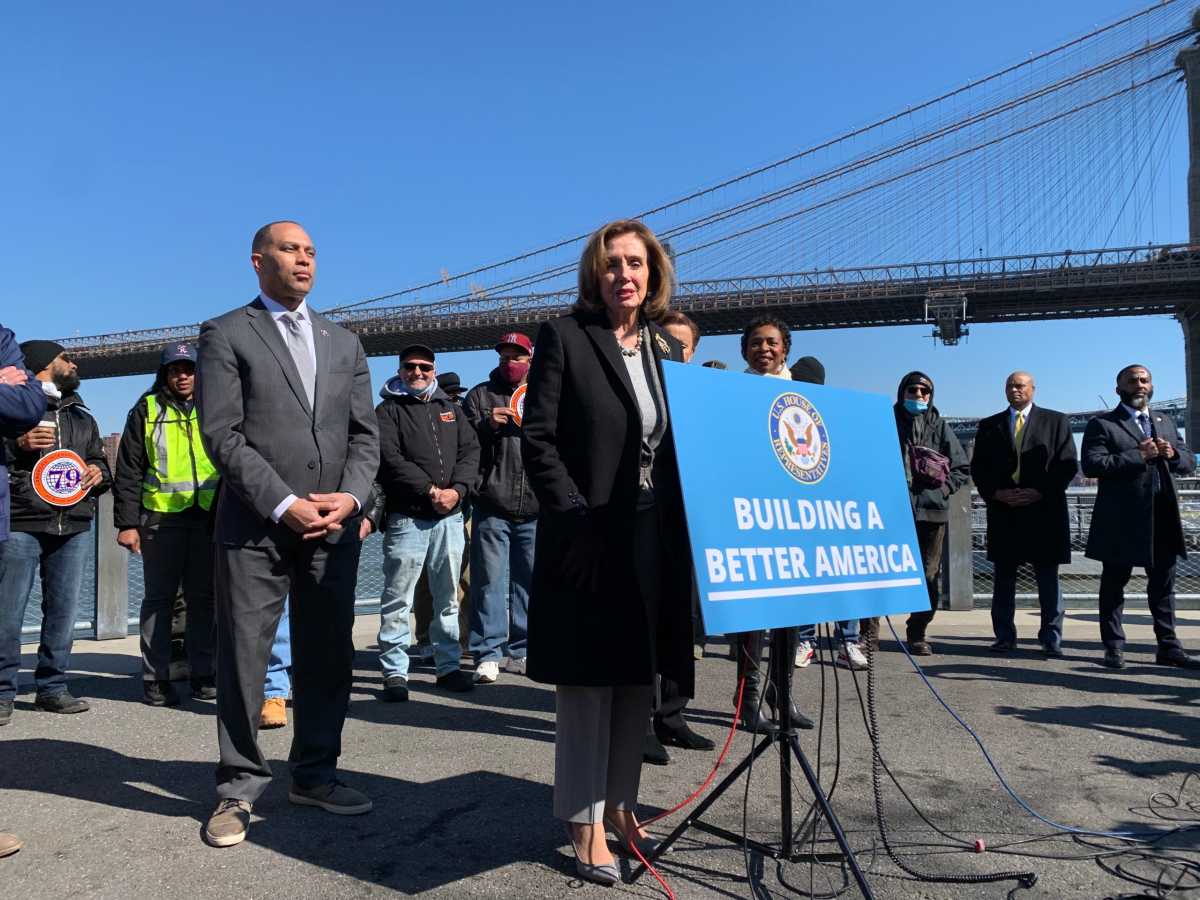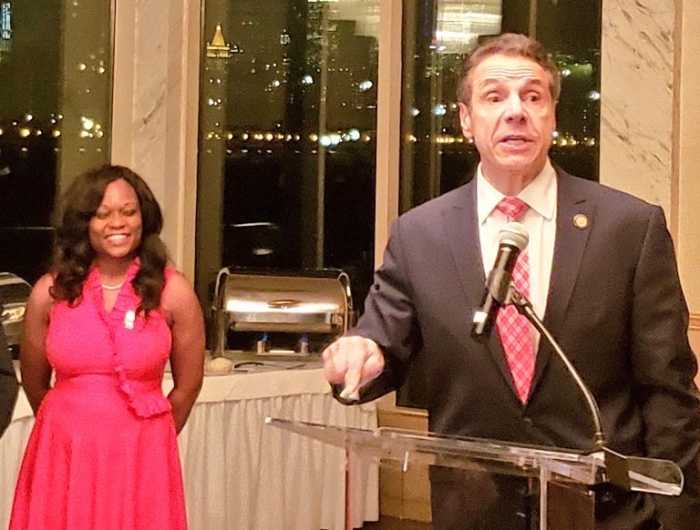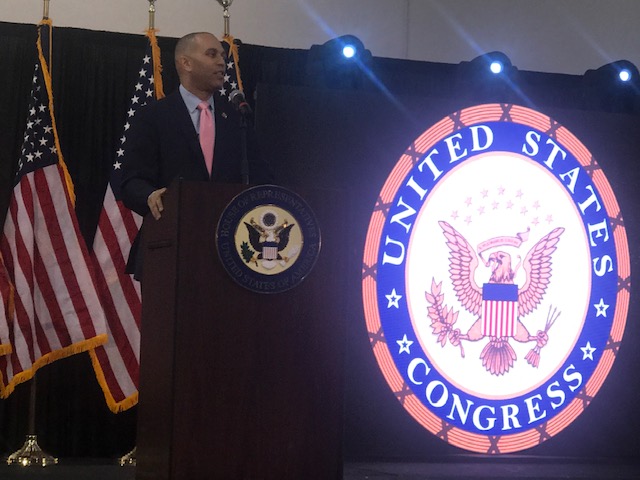While touting President Joe Biden’s $550 billion infrastructure bill in Brooklyn Bridge Park this morning, House Speaker Nancy Pelosi (D – CA) said Congress may take a second shot at passing the separate social spending bill that died in the U.S. Senate last year through the budget reconciliation process.
“When we did the infrastructure bill, President Biden said, ‘I want to do everything we can in a bipartisan way, but I cannot confine my vision for America to what we can just do in that bill,’” Pelosi said. “And that is why we have to get this done in the form of a reconciliation bill, which just requires 51 votes in the Congress.”
Pelosi was joined by three members of the New York City Congressional Delegation, U.S. Reps. Hakeem Jeffries (D – Brooklyn), Queens) Nydia Velazquez (D – Brooklyn, Manhattan, Queens) and Yvette Clarke (D – Brooklyn) as well as representatives of unions like the New York City District Council of Carpenters.
The social spending bill, known as the Build Back Better Act, was originally supposed to be passed in tandem with the hard infrastructure bill, which Biden signed into law late last year. The hard infrastructure package provides much needed funds for things like repairing roads and bridges, improving public transportation and building out the country’s broadband network. Whereas Build Back Better would’ve made major investments in child and elder care, combating climate change and expanding affordable healthcare by lowering prescription drug prices.
The originally $1.9 trillion Build Back Better plan passed the House last fall but never made it past the U.S. Senate, where the Democratic leadership was unable to bring centraist Senator Joe Manchin (D – WV) on board. In the 50-50 Senate, the support of Manchin and another centrist U.S. Senator Kirsten Sinema (D – AZ) is critical to the passage of any social spending bill.
It’s still not clear how any social spending package in the mold of Build Back Better would be able to pass the U.S. Senate this year considering Manchin has said he won’t support the legislation without significant changes. Still, Biden is now promoting a revamped version of Build Back Better that centers on lowering prescription drug prices and other forms of cost-cutting aimed at lowering inflation.
But instead of focussing on a strategy for passing some form of Build Back Better, Pelosi spent her time – speaking near the Brooklyn Bridge – emphasizing the passage of the hard infrastructure deal as a legislative victory ahead of this year’s midterm elections.
“Our bridges across the country, tens of thousands of them, are in disrepair,” Pelosi said. “And we had to bring the money home to repair them again, so that they can be sustained. But also so that they can be safe. So, this is about safety, it’s about economic growth, it’s about respecting workers, it’s about engaging women and minorities more in the work force with workforce development.”
According to Pelosi, the bill gives New York $11.6 billion to repair highways, $9.8 billion to improve public transit, $1.9 billion to replace bridges and $685 million to update airports.
“That’s a lot of money and a lot of jobs,” Pelosi said.
Velazquez said the physical infrastructure bill is necessary for New York because extreme weather events like Superstorm Sandy – which hit the city nearly 10 years ago – showed the city’s infrastructure needs to be significantly improved in order to withstand future storms of the same magnitude.
“I am proud that the bipartisan infrastructure bill will strengthen our nation’s resilience to extreme weather and climate change,” Velazquez said. “Clean up toxic pollution, expand access to clean drinking water, remediate legacy pollution and support clean air and more. And it does all of this with a focus on environmental justice and community.”
While the future of Build Back Better is uncertain, Jeffries emphasized all of the work he says the Biden administration has gotten done since taking office a little over a year ago.
“So, as the speaker indicated, yes, there is still work to be done,” Jeffries said. “Because, yes, we want to make sure we are there for everyday Americans, for organized labor, so that they can experience the American dream. But a lot has already happened. And that’s thanks to the leadership of President Biden and Speaker Pelosi.”










